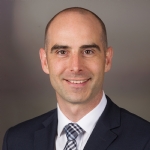New Demand for Childcare Driving Down Yields
20 October 2015
Share market volatility along with strong government support for one of the nation’s most rapidly growing industries is driving increasing demand for chlldcare centre investments, according to Savills Australia Director, Julian Heatherich.
In a number of recent deals properties have sold off-market, off-the-plan, prior to auction and at hotly contested auctions, with yields in Melbourne falling as low as 3.89 percent.
In the latest deal a China based investor paid $2.3 million on a 5.1 percent yield for a centre at 2 Bernard Hamilton Way, Rowville in Melbourne’s outer east.
Mr Heatherich said the property sold within six days of the campaign start and three weeks before the scheduled auction at a premium price. He said, in the short time it was on the market, the property received several other offers to purchase pre-auction.
The purpose built centre sold subject to a ten year lease at $118,110 per annum net with 100 percent occupancy and an extensive waiting list. The centre was ideally located within a dense residential catchment area.
At an earlier auction a Melbourne based private investor outbid five other potential purchasers for a Thornbury childcare centre with a final bid of $1.83 million on what is believed to be a record low 3.89 percent yield.
Savills Sales Executive, Tim McIntosh, said the marketing campaign for the 200 Smith Street property attracted more than 100 enquiries, 20 inspections, 15 requests for the Contract of Sale and, again, multiple offers to purchase prior to the auction.
He said the tenant on a 10 year lease was national operator Guardian Early Learning Group which owns or manages up to 90 centres.
Mr Heatherich said the average initial yield of childcare centres in metropolitan Melbourne in 2014 had been around 6.75 percent and that yields this year had, until recently been in the 6 to 7 percent range.
He said long term leases and strong government support for one of the nation’s most rapidly growing industries had been key drivers however recent share market volatility had coincided with a significant rise in enquiry.
“Small investors have traditionally been buyers of retail strip and residential assets and more recently that list has extended to childcare properties and there are a number of reasons for that including the negative performance of share market investments.
“Bricks and mortar investments have always provided what some may call a safety net for investors at times of economic uncertainty, but what is also a key driver is the rapidly growing nature of the childcare sector and the confidence that comes from the strong support the sector has from the Federal Government.
“Add secure ten to 15 year leases and a statutory obligation for lessees to fastidiously maintain in the best possible order a facility which houses our young children, and the reason for the increase in demand becomes a real no-brainer,” Mr Heatherich said.
In other sales an emerging childcare investment trust paid $4.35 million, in an off-market deal, for a former Hungry Jacks outlet at Coburg, with plans for a childcare centre conversion, while a local private investor paid $3.25 million for an off-the-plan childcare centre in Vantage Avenue, Clyde North, subject to a pre-lease to childcare centre operator Eclipse Early Education Group on a 10-year term.
Mr McIntosh said a Productivity Commission Report and a recent government announcement had further underpinned the market.
“The Productivity Commission report into the childcare sector suggested an additional 50,000 long day care places will be needed to accommodate the population growth in children and the subsequent demand for childcare over the next ten years while an increase in the maximum daily subsidy for childcare, proposed by the Federal Government, has provided further confidence for a market which is already one of the nations’ strongest employment growth sectors,” Mr McIntosh said.
The Federal Government, in the 2015 Budget, announced $3.2 billion of new spending over four years to improve the affordability of childcare for low and middle income earners.
According to the Department of Social Services data, 1.2 million children attended approved child care in the year to September 2014, up 8.1 percent on the previous year while the number of long day care centres grew to 6601.
Mr McIntosh said the market would need to provide more than 500 new centres at circa 100 places each over the next ten years, to cope with the Productivity Commission’s suggested additional demand for 50,000 long day care places.
“Childcare centres are going to figure prominently in small investor portfolio considerations for years to come. We are only seeing the start of that trend now,” Mr McIntosh said.
Ownership of centres is dominated by institutional and not for profit organisations including Goodstart (formerly ABC Learning Centres) which has 641 centres and a circa 10 percent market share, Folkestone Education Trust (395 properties), G8 Education (more than 400 centres), Arena REIT (179 centres) and Affinity Education Group (more than 150 centres).
Think Childcare (37 centres), Guardian Early Learning Group, and Mission Australia (52) make up the numbers of many other smaller groups.


